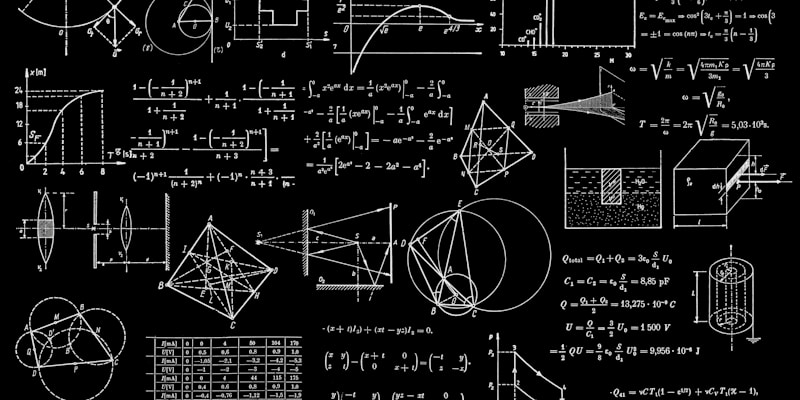AI's Growing Role in Scientific Education and Research
The intersection of artificial intelligence and scientific education has reached a critical juncture, with AI systems demonstrating remarkable capabilities across various scientific disciplines. From graduate-level biomedicine to advanced physics, AI models are not only participating in scientific assessments but are often outperforming human students, raising important questions about the future of scientific education and research.
Graduate Science Performance: A Comprehensive Analysis
Recent evaluations of GPT-4 across nine graduate-level science courses have revealed performance that consistently matches or exceeds human student averages. This comprehensive assessment covered diverse scientific domains, providing insights into AI's capabilities across the scientific spectrum.
GPT-4 Graduate Science Performance
- Overall Performance: At or above course average in 7 out of 9 courses
- Top Performance: Highest score achieved in 4 courses
- Consistency: Maintained high performance across diverse scientific domains
- Depth of Understanding: Demonstrated conceptual mastery beyond memorization
Key Scientific Domains Assessed
The assessment covered a broad range of scientific disciplines, each presenting unique challenges:
- Biomedical Sciences: Molecular biology, genetics, and medical research
- Chemistry: Organic chemistry, biochemistry, and analytical chemistry
- Physics: Theoretical physics, quantum mechanics, and statistical physics
- Mathematics: Advanced calculus, linear algebra, and mathematical modeling
- Computer Science: Algorithms, data structures, and computational theory
Performance Analysis by Domain
Detailed analysis reveals varying performance across different scientific areas:
| Scientific Domain | AI Performance | Student Average | Key Strengths |
|---|---|---|---|
| Biomedical Sciences | Above Average | Course Average | Literature synthesis, experimental design |
| Chemistry | At Average | Course Average | Mechanistic reasoning, molecular modeling |
| Physics | Below Average | Course Average | Conceptual understanding, mathematical rigor |
| Mathematics | Above Average | Course Average | Proof techniques, abstract reasoning |
The PhysUniBench Challenge
While AI systems excel in many scientific domains, the PhysUniBench assessment revealed important limitations. This comprehensive physics benchmark, containing over 3,300 university-level questions, showed that even state-of-the-art AI systems struggle with certain types of scientific problems:
PhysUniBench Results
- Overall Accuracy: ~33% correct answers
- Challenge Areas: Conceptual problems, multimodal questions
- Performance Gap: Significantly below undergraduate proficiency
- Key Limitation: Difficulty with text+diagram integration
Understanding AI's Scientific Strengths and Weaknesses
The varying performance across scientific domains reveals important insights about AI capabilities:
Areas of Strength:
- Information Synthesis: Combining knowledge from multiple sources
- Pattern Recognition: Identifying trends and relationships in data
- Systematic Analysis: Structured problem-solving approaches
- Literature Review: Comprehensive analysis of scientific literature
Areas of Challenge:
- Multimodal Integration: Combining text with diagrams and visual data
- Conceptual Understanding: Deep comprehension of abstract concepts
- Experimental Design: Creative problem-solving in research contexts
- Physical Intuition: Understanding of real-world physical phenomena
Implications for Scientific Education
The success of AI in scientific assessments has profound implications for how we approach scientific education:
- Curriculum Evolution: Focus on skills that complement AI capabilities
- Experimental Skills: Emphasis on hands-on laboratory experience
- Creative Problem-Solving: Development of innovative research approaches
- Interdisciplinary Thinking: Integration across scientific domains
The Future of AI in Scientific Research
Beyond education, AI's capabilities suggest transformative potential for scientific research:
Research Applications
- Literature Analysis: Automated review of scientific papers
- Hypothesis Generation: AI-assisted research question development
- Data Analysis: Pattern recognition in complex datasets
- Collaborative Research: Human-AI partnership in scientific discovery
Challenges and Ethical Considerations
As AI becomes more integrated into scientific education and research, several challenges emerge:
- Academic Integrity: Ensuring proper attribution and avoiding plagiarism
- Quality Assurance: Maintaining scientific rigor in AI-assisted work
- Bias and Fairness: Addressing potential biases in AI scientific analysis
- Human Oversight: Preserving human judgment in critical scientific decisions
Looking Forward
The integration of AI into scientific education and research represents both an opportunity and a challenge. The key to success lies in understanding AI's capabilities and limitations while developing educational approaches that leverage AI as a tool for human enhancement.
Key Takeaways
- AI demonstrates strong performance in many scientific domains
- Physics and multimodal problems remain challenging for current AI
- Scientific education must evolve to complement AI capabilities
- The future lies in human-AI collaboration in scientific research
As we move forward, the goal should be to create educational environments that prepare students to work effectively with AI tools while developing the uniquely human skills that remain essential for scientific discovery and innovation.

